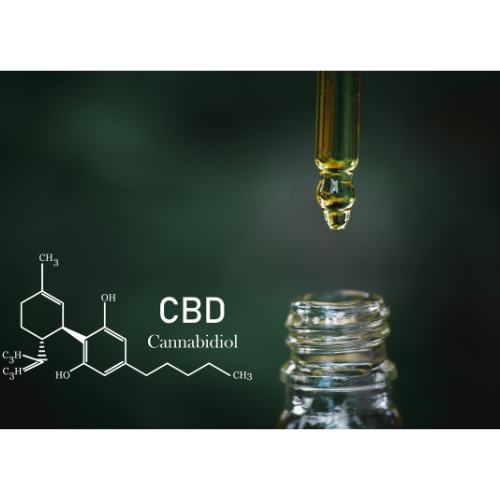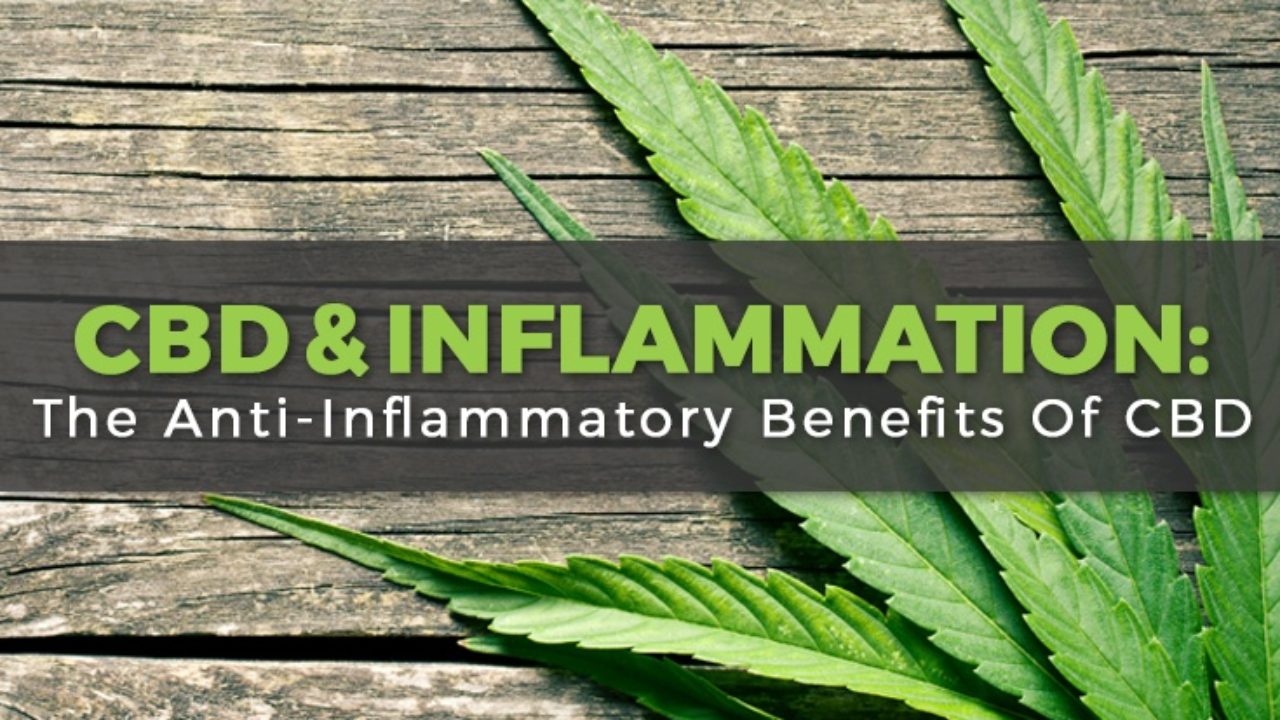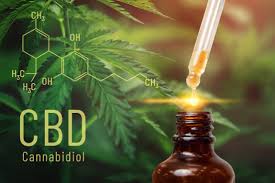In recent years, CBD has gained significant attention and popularity for its potential health benefits. From relieving pain and reducing anxiety to promoting better sleep and enhancing skincare, CBD seems to have a wide range of applications. But what exactly is CBD, and why is it becoming so popular?
In this article, we will take a closer look at the power of CBD and explore its various uses. We will delve into the origins and history of CBD, examine how it interacts with the body, and discuss its potential health benefits. Additionally, we will address common questions surrounding CBD, such as its legal status and safety considerations.
Whether you’re new to CBD or looking to expand your knowledge, this article will provide you with a comprehensive understanding of this fascinating compound. So, let’s dive in and uncover the incredible potential of CBD! But first, let’s start with the basics: What exactly is CBD?
What is CBD?
Definition and Explanation
CBD, short for cannabidiol, is a naturally occurring compound found in the cannabis plant. Unlike its counterpart, THC (tetrahydrocannabinol), CBD does not possess psychoactive properties, meaning it does not induce a “high” sensation typically associated with cannabis use. Instead, CBD is known for its potential therapeutic effects on the body and mind.
Origins and History
The use of cannabis for medicinal purposes can be traced back thousands of years. Ancient civilizations, such as the Egyptians, Greeks, and Chinese, recognized the plant’s potential healing properties. However, it wasn’t until more recent times that scientists began to isolate and study the individual compounds within cannabis.
CBD was first discovered in the 1940s, but it wasn’t until the 1960s that its structure was fully elucidated. Since then, research on CBD has expanded, uncovering its potential benefits and shedding light on its mechanisms of action within the body.
Difference between CBD and THC
While both CBD and THC are compounds found in the cannabis plant, they have distinct effects on the body. As mentioned earlier, CBD does not produce the psychoactive effects associated with THC. This makes CBD a more appealing option for individuals seeking therapeutic benefits without the mind-altering consequences.
By harnessing the power of CBD, individuals can explore a plethora of potential health benefits, ranging from pain management to anxiety relief. In the following sections, we will delve deeper into how CBD works within the body and the various ways it can be used to promote well-being.
Stay tuned for the next section, where we will explore the fascinating world of the endocannabinoid system and how CBD interacts with it to provide its remarkable effects.
What is CBD?
Definition and Explanation
CBD, short for cannabidiol, is a naturally occurring compound found in the cannabis plant. It is one of over 100 cannabinoids that have been identified, each with its own unique properties and potential benefits. CBD has gained significant attention in recent years due to its wide range of therapeutic applications. Unlike its psychoactive counterpart, THC (tetrahydrocannabinol), CBD does not produce a “high” sensation, making it an appealing option for those seeking relief without the associated mind-altering effects.
CBD interacts with the body’s endocannabinoid system (ECS), a complex network of receptors and neurotransmitters that helps regulate various bodily functions such as mood, sleep, pain perception, and immune response. By interacting with these receptors, CBD can potentially influence these functions and promote overall well-being.
Origins and History
The use of cannabis for medicinal purposes dates back thousands of years, with historical evidence suggesting its use in ancient civilizations such as China, Egypt, and India. However, the specific discovery of CBD as an individual compound occurred much later.
In 1940, CBD was isolated and its chemical structure elucidated by a team of researchers led by Dr. Roger Adams at the University of Illinois. However, it wasn’t until several decades later that CBD started gaining attention for its potential therapeutic properties.
Over time, scientists and researchers began to uncover the various benefits of CBD, leading to a surge in interest and research surrounding its potential applications. Today, CBD is being studied for its potential in managing pain, reducing anxiety and stress, improving sleep quality, and even supporting skin health.
Difference between CBD and THC
While CBD and THC are both cannabinoids found in the cannabis plant, they have distinct characteristics and effects on the body. The most significant difference between the two is their psychoactive properties.
THC is the primary psychoactive compound in cannabis, responsible for the euphoric “high” sensation often associated with marijuana use. On the other hand, CBD is non-intoxicating and does not produce a psychoactive effect. This key distinction makes CBD a more desirable option for individuals seeking the potential therapeutic benefits of cannabis without the unwanted psychoactive effects.
Furthermore, CBD and THC interact differently with the endocannabinoid system. THC primarily binds to the CB1 receptors in the brain and central nervous system, while CBD has a more complex mechanism of action, influencing various receptors and neurotransmitters in the body. This distinction may account for the differences in their effects and potential applications.
It is important to note that the legal status of CBD and THC varies depending on the jurisdiction. While CBD derived from hemp is federally legal in the United States, THC is still classified as a controlled substance in many states. Therefore, it is crucial to understand the legal regulations surrounding CBD and THC in your specific location.
In the next section, we will explore how CBD interacts with the body’s endocannabinoid system and the potential health benefits it may offer. Stay tuned!
Want to learn more about CBD and its potential benefits? Check out our CBD facts page for a comprehensive overview!
How Does CBD Work?
CBD, or cannabidiol, has gained significant attention in recent years for its potential health benefits. But how does it actually work? To understand the mechanism behind CBD’s effects, we need to explore the fascinating world of the endocannabinoid system.
Endocannabinoid System
The endocannabinoid system (ECS) is a complex network of receptors, enzymes, and endocannabinoids that exists within the human body. It plays a crucial role in maintaining balance and harmony, also known as homeostasis. The ECS is involved in regulating various physiological functions, including mood, pain sensation, appetite, and immune response.
The ECS consists of two primary types of receptors, known as CB1 and CB2 receptors. CB1 receptors are primarily found in the central nervous system, while CB2 receptors are predominantly located in peripheral tissues, such as the immune cells. When CBD enters the body, it interacts with these receptors, influencing their activity and modulating various processes.
Interaction with the Body
CBD has a unique interaction with the endocannabinoid system. Unlike its cousin THC (tetrahydrocannabinol), CBD does not directly bind to the CB1 and CB2 receptors. Instead, it influences these receptors indirectly, either by enhancing the effects of endocannabinoids or by inhibiting their breakdown.
One of the ways CBD affects the ECS is by inhibiting the enzyme FAAH (fatty acid amide hydrolase), which is responsible for breaking down anandamide, an endocannabinoid known as the “bliss molecule.” By inhibiting FAAH, CBD increases the levels of anandamide in the body, leading to potential mood-enhancing effects.
Another mechanism by which CBD interacts with the ECS is through its influence on serotonin receptors. Serotonin is a neurotransmitter that plays a crucial role in regulating mood and anxiety. CBD has been shown to activate the 5-HT1A receptor, which is involved in the release of serotonin. This interaction may contribute to CBD’s potential anxiolytic (anti-anxiety) properties.
Health Benefits
The interaction between CBD and the endocannabinoid system gives rise to a wide range of potential health benefits. Research suggests that CBD may have analgesic properties, making it a promising option for pain management. It may also help alleviate symptoms of anxiety and depression, offering a natural alternative to traditional pharmaceuticals.
Furthermore, CBD has shown potential as an anti-inflammatory agent, which could make it beneficial for conditions such as arthritis and inflammatory bowel disease. Its antioxidative properties may also contribute to its ability to protect against oxidative stress and promote overall wellness.
It’s important to note that while CBD holds promise, more research is needed to fully understand its mechanisms of action and its potential therapeutic applications. As always, it’s advisable to consult with a healthcare professional before incorporating CBD into your wellness routine.
In the next section, we will explore some of the common uses of CBD, including pain management and anxiety relief. Stay tuned to discover how CBD may offer a natural solution to these everyday challenges.
Sources:
Common Uses of CBD
CBD, or cannabidiol, has gained immense popularity in recent years due to its potential health benefits. People from all walks of life are turning to CBD as a natural alternative for various ailments. Let’s explore some of the common uses of CBD and how it may help improve overall well-being.
Pain Management
One of the most well-known uses of CBD is for pain management. Whether it’s chronic pain or temporary discomfort, CBD has been found to offer relief for many individuals. By interacting with the body’s endocannabinoid system, CBD helps reduce inflammation and alleviate pain. This makes it a compelling option for those seeking a more natural approach to pain relief.
Anxiety and Stress Relief
Anxiety and stress have become prevalent in today’s fast-paced world. Many individuals are looking for ways to manage these overwhelming feelings without relying on prescription medications. CBD has shown promise in reducing anxiety and stress levels, providing a sense of calm and relaxation. Its interaction with the endocannabinoid system helps regulate mood and promote a sense of well-being.
Sleep Aid
Sleep is crucial for overall health and well-being, yet many people struggle with insomnia or other sleep disorders. CBD may offer a solution for those seeking a more restful night’s sleep. By reducing anxiety and promoting relaxation, CBD can help individuals fall asleep faster and stay asleep longer. Its natural properties make it an attractive option for those looking to improve the quality of their sleep without the side effects associated with traditional sleep aids.
Skin Care
In addition to its internal benefits, CBD has also gained popularity in the realm of skincare. Due to its anti-inflammatory properties, CBD is believed to help soothe and improve various skin conditions. It has been used to alleviate symptoms of acne, eczema, and even psoriasis. CBD-infused skincare products such as creams, lotions, and serums are becoming increasingly popular for their potential to nourish and rejuvenate the skin.
CBD’s versatility and potential health benefits make it an exciting option for those looking to explore natural alternatives. Whether it’s managing pain, reducing anxiety, improving sleep, or enhancing skincare, CBD offers a potential solution that resonates with many individuals.
Remember, when considering CBD for any specific use, it’s important to consult with a healthcare professional to determine the best approach for your individual needs. Additionally, always ensure that you are purchasing high-quality CBD products from reputable sources to maximize its potential benefits.
Stay tuned for more information on CBD’s legality and safety considerations in our upcoming articles.
For more information on CBD and its potential benefits, check out Mr. Mean Green’s CBD information page.
Is CBD Legal?
As the popularity of CBD continues to surge, many people are curious about its legal status. Understanding the legal landscape surrounding CBD is important, as it can vary from state to state and is subject to regulations by the FDA.
Overview of Legal Status
The legal status of CBD can be complex, but in general, CBD derived from hemp plants containing less than 0.3% THC is legal at the federal level. This distinction is crucial because THC is the psychoactive compound in cannabis that produces a “high” sensation. Hemp, on the other hand, contains low levels of THC and high levels of CBD, making it ideal for CBD extraction.
In 2018, the Farm Bill was passed, which legalized the cultivation and production of hemp and its derivatives, including CBD, on a federal level. This landmark legislation opened the floodgates for the CBD market, allowing consumers to access a wide range of CBD products, from CBD gummies to CBD capsules and more.
Differences by State
While CBD is legal at the federal level, it’s important to note that individual states have the authority to enact their own regulations. Some states have embraced CBD and have established clear guidelines for its sale and consumption, while others have imposed restrictions or outright bans.
Therefore, it’s essential for consumers to familiarize themselves with the laws in their specific state. This knowledge ensures compliance and helps avoid any legal complications. To find detailed information about the legality of CBD in your state, check out this guide on CBD legality.
FDA Regulations
The FDA, or Food and Drug Administration, plays a significant role in regulating CBD products. As of now, the FDA has only approved one CBD-based medication, Epidiolex, which is used to treat certain types of epilepsy. However, the agency has not yet established comprehensive regulations for other CBD products, such as oils, tinctures, and topicals.
Without clear guidelines from the FDA, the CBD market has become a bit of a gray area. This lack of regulation has led to inconsistencies in product quality and labeling. Consumers must exercise caution when purchasing CBD products and look for reputable brands that adhere to high standards of quality and transparency.
To learn more about the FDA’s stance on CBD and stay updated on any regulatory changes, it’s advisable to visit the FDA’s official website or refer to reliable sources of information on CBD information.
In conclusion, while CBD is legal at the federal level, it’s essential to be aware of the specific regulations in your state. Additionally, the FDA’s current stance on CBD products underscores the importance of choosing high-quality CBD products from trusted sources. By staying informed and making informed decisions, consumers can navigate the evolving landscape of CBD legality with confidence.
Safety Considerations
When it comes to incorporating CBD into your wellness routine, it’s important to prioritize safety. While CBD is generally well-tolerated by most individuals, there are a few safety considerations to keep in mind. This section will explore the potential side effects of CBD, interactions with other medications, and tips for choosing high-quality CBD products.
Potential Side Effects
While CBD is known for its numerous health benefits, it’s essential to be aware of potential side effects. These side effects are typically mild and temporary, but it’s still important to understand them. Some individuals may experience drowsiness, dry mouth, or changes in appetite. These effects are usually mild and subside over time as your body adjusts to CBD. It’s important to note that everyone’s body is unique, and individual reactions may vary.
Drug Interactions
If you’re currently taking any medications, it’s crucial to consult with your healthcare provider before incorporating CBD into your routine. CBD can potentially interact with certain medications, particularly those that are metabolized by the liver. This is because CBD can inhibit the activity of certain enzymes responsible for breaking down medications. By inhibiting these enzymes, CBD may increase the concentration of certain drugs in the bloodstream, leading to potential interactions.
To ensure your safety, it’s important to have an open and honest conversation with your healthcare provider about your CBD use and any medications you’re taking. They can provide personalized guidance and monitor any potential interactions to ensure your well-being.
Choosing High-Quality CBD Products
With the growing popularity of CBD, it’s crucial to choose high-quality products to ensure safety and effectiveness. Here are a few tips to help you make informed decisions:
1. Look for Third-Party Testing: Reputable CBD brands will often provide third-party lab test results for their products. These tests verify the potency and purity of the CBD, ensuring that it’s free from harmful contaminants.
2. Read Customer Reviews: Reviews from other customers can provide valuable insights into the quality and effectiveness of a CBD product. Look for reviews from verified purchasers to get a better understanding of the brand’s reputation.
3. Consider the Extraction Method: Different CBD products are extracted using various methods, such as CO2 extraction or solvent-based extraction. CO2 extraction is generally considered the gold standard as it preserves the purity of the CBD without the use of harmful solvents.
4. Check THC Content: Ensure that the CBD product you choose contains less than 0.3% THC to comply with federal regulations. If you prefer to avoid THC altogether, consider broad-spectrum CBD products, which contain other beneficial compounds found in hemp, but without the THC.
By following these guidelines, you can make informed decisions and choose CBD products that are safe, reliable, and effective.
In conclusion, while CBD offers numerous potential benefits, it is essential to be aware of potential side effects, drug interactions, and the importance of choosing high-quality products. By prioritizing safety and being well-informed, you can confidently incorporate CBD into your wellness routine and experience its potential benefits.
Remember, if you have any concerns or questions about CBD, it’s always best to consult with a healthcare professional who can provide personalized guidance based on your individual needs and circumstances.
Conclusion
In conclusion, CBD is a powerful compound that has gained significant popularity in recent years. Its benefits and potential applications are wide-ranging, making it a versatile supplement for a variety of purposes.
CBD, or cannabidiol, is derived from the hemp plant and offers a myriad of health benefits without the psychoactive effects associated with THC, the compound found in marijuana. This makes CBD an attractive option for those seeking natural remedies without experiencing a “high.”
By interacting with the body’s endocannabinoid system, CBD can help regulate various bodily functions and promote overall well-being. Its ability to alleviate pain, reduce anxiety and stress, aid in sleep, and even improve skin health has made it a sought-after alternative to traditional medications.
When considering CBD, it is essential to be aware of its legal status, which can vary by state and country. While CBD is legal at the federal level in the United States, individual states may have different regulations regarding its sale and use. It is crucial to familiarize oneself with local laws to ensure compliance.
As with any supplement, it is important to consider safety considerations when using CBD. While it generally has a good safety profile, some individuals may experience mild side effects such as dry mouth, drowsiness, or changes in appetite. It is also essential to be mindful of potential drug interactions, as CBD can affect the metabolism of certain medications.
To ensure the highest quality and efficacy, it is advisable to choose reputable CBD products from trusted manufacturers. Look for products that have undergone third-party testing to verify their potency and purity. Whether you prefer CBD gummies, capsules, or tinctures, there are various options available to suit individual preferences and needs.
In conclusion, CBD offers a natural, holistic approach to wellness and has the potential to improve the quality of life for many individuals. From pain management to anxiety relief, its versatile applications make it a promising supplement for a wide range of conditions. As research continues to unfold, more insights into the benefits and potential uses of CBD will undoubtedly emerge.
For more information on CBD, its health benefits, and dosage guidelines, please refer to Mr. Mean Green’s CBD Blog.





